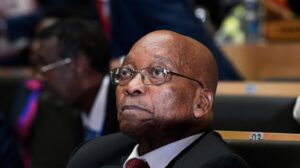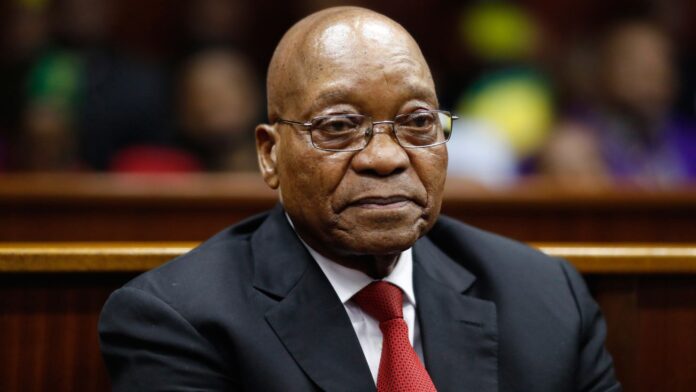In a decision that is likely to incite anger among Jacob Zuma’s supporters and raise concerns about potential unrest, South Africa’s top court ruled on Monday that the former president, who has been embroiled in corruption scandals, is ineligible to run for parliament in the upcoming general election.
This election, scheduled for May 29, is already anticipated to be the most fiercely contested since the country’s transition to post-apartheid democracy in 1994.

Zuma had challenged the electoral commission’s decision, which cited his previous conviction for contempt of court as grounds for disqualifying him from becoming a Member of Parliament (MP).
The Supreme Court dismissed his complaint, stating that the constitution prohibits individuals sentenced to more than 12 months in jail from holding parliamentary positions.
Justice Leona Theron, while reading the judgment, declared, “This court concludes that Mr. Zuma was convicted of an offense and sentenced to more than 12 months imprisonment… and is accordingly not eligible to be a member of and not qualified to stand for election to the national assembly.”
Since the South African president is chosen by MPs from within their own ranks, Zuma’s absence from the ballot would prevent him from assuming the presidency, even if his newly-formed party manages to secure enough seats to nominate him.
During a rally in Soweto over the weekend, Zuma addressed a massive crowd of 30,000 people, predominantly speaking in Zulu to appeal to his core support base.
Zuma’s supporters, many of whom gathered near the court wearing military attire associated with his uMkhonto we Sizwe (MK) party, are determined to win a sufficient number of seats—two-thirds of the National Assembly—to bring about constitutional changes.
However, opinion polls suggest that the party is unlikely to perform well beyond Zuma’s home province of KwaZulu-Natal.
“We are very disappointed. There is an agenda, of course, to delay the liberation of black people in this country,” expressed Lindiwe Mtshali, a member of the MK party, outside the court. Mtshali, donning a black MK Women’s League T-shirt, acknowledged the anticipated decision regarding Zuma’s candidacy but remained confident that the remaining MK candidates would still perform well in the election.
She emphasized that Zuma’s name and face would still appear on the already printed ballot papers.
Since leaving office, Zuma has been entangled in numerous legal battles. He established the MK party to challenge Cyril Ramaphosa’s African National Congress (ANC) in the upcoming election, which could potentially mark the first time since 1994 that the ANC fails to secure an absolute majority.
The ANC has emerged victorious in every South African election since the country’s transition to democracy, and Zuma served as the party’s fourth president from 2009 to 2018. This period has become synonymous with official corruption for many South Africans.
Zuma, who departed from office in 2018 amidst corruption allegations, was convicted of contempt of court in 2021 and sentenced to 15 months. However, he served less than three months in jail, and the court deemed the subsequent remission irrelevant.




